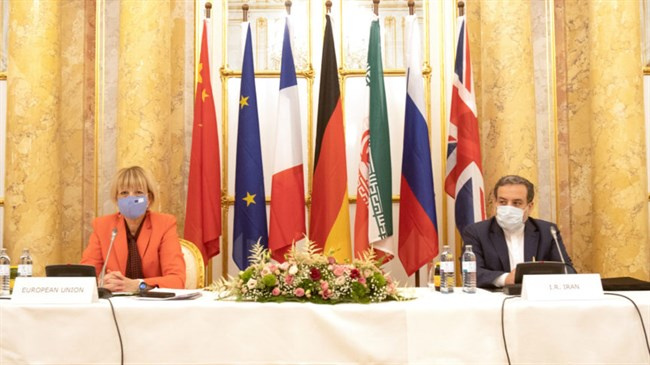Think tank urges Europe to bolster transatlantic diplomacy on Iran

International Desk
A European think tank on Monday urged European countries to work with the incoming administration of US President-elect Joe Biden to bolster the Iran nuclear deal.
In a joint statement, the European Council on Foreign Relations (ECFR) said Europe must “unequivocally” call on the Biden administration and Iran “to swiftly come back into full compliance” with the deal.
Iran and six world powers – the US, Britain, Germany, France, China and Russia – signed the Joint Comprehensive Plan of Action (JCPOA) in 2015 which curbed Tehran’s nuclear work in return for the lifting of economic sanctions.
But US President Donald Trump withdrew from the JCPOA in 2018 and reinstated tough sanctions.
The think tank said the election of Biden presents “an opening to strengthen transatlantic relations” to preserve the nuclear deal.
“European actors should pro-actively, and in a coordinated fashion lay out a viable roadmap to support this effort.”
It said the Trump administration’s “maximum pressure” campaign against Iran has “failed,” with “the unprecedented sanctions negatively impacting ordinary Iranians.”
In response to reimposed US sanctions, Iran took several steps away from its commitments under the JCPOA.
Rising tensions brought the US and Iran to the brink of military confrontation after Washington’s unilateral pullout.
The statement urged the US and Iran “to urgently cool tensions and restore diplomatic engagement.”
“This should start with rehabilitating the nuclear deal, which is a critical global non-proliferation agreement.”
The ECFR laid out a series of steps that the European Union and European governments should prioritize for diplomatic engagement between Washington and Tehran under the next US administration to revitalize the JCPOA.
The steps are as follows:
1. In the coming weeks, France, Germany and the United Kingdom (E3) should coordinate a joint public statement calling on the incoming Biden administration, once inaugurated, to formally announce its intent to rejoin the JCPOA, urging the United States and Iran to agree on steps for mutual re-compliance and then to build on the agreement. European governments and the EU should simultaneously intensify congressional outreach in Washington in support of Biden’s return to the agreement.
2. The E3 countries should press for a Joint Commission meeting of the JCPOA parties to be held prior to January 20. The European Union’s High Representative Josep Borrell should, as chair of the Joint Commission, encourage the current members of the agreement to call for the return of the United States to the JCPOA and for the US to reaffirm support for UN Security Council Resolution 2231. The Joint Commission should also call on the United States to reissue waivers for civil nuclear cooperation (revoked under Trump) as soon as possible to facilitate Iran’s roll-back of nuclear activities and the modernization of Iran’s Arak heavy water reactor.
3. Between now and January 20, the E3 and the EU should convene a political director level meeting with Iran, to scope out a clear pathway for Iran to reverse its nuclear activities. Europeans should stress to Iran that such steps will be a necessary component for the United States to fully return to the JCPOA under a Biden administration. This process should involve an extensive discussion with Iran on technical steps to roll back its nuclear program, the realistic contours of sanctions relief under a Biden administration, and European measures to support Iran’s economy. The E3 and the EU should also use existing diplomatic channels with Iran to caution against escalation with the United States, particularly in Iraq where there is a high risk of tensions. Any escalation in advance of Biden’s inauguration would greatly complicate diplomatic efforts.
4. In parallel to the nuclear track, European countries and the EU should articulate a diplomatic roadmap for transatlantic cooperation on regional de-escalation to the incoming Biden administration and wider American policy community. Ahead of Biden’s inauguration, European governments should also intensify communication with other regional actors, notably Israel, Saudi Arabia and the United Arab Emirates, aimed at both preventing dangerous escalation and laying the groundwork for a wider subsequent process in line with the efforts of the United Nations secretary-general to advance regional security. This will be needed to reassure and offset opposition to renewed engagement with Iran from some of Europe’s regional partners. As part of this approach, Europeans should now start to intensify efforts in support of inclusive stabilization efforts in Iraq and Yemen.
European countries must move fast… to urge the incoming Biden administration to take advantage of the political momentum following his inauguration to actively engage Iran and reverse the current dangerous escalatory trajectory.
Source: Iran Daily

